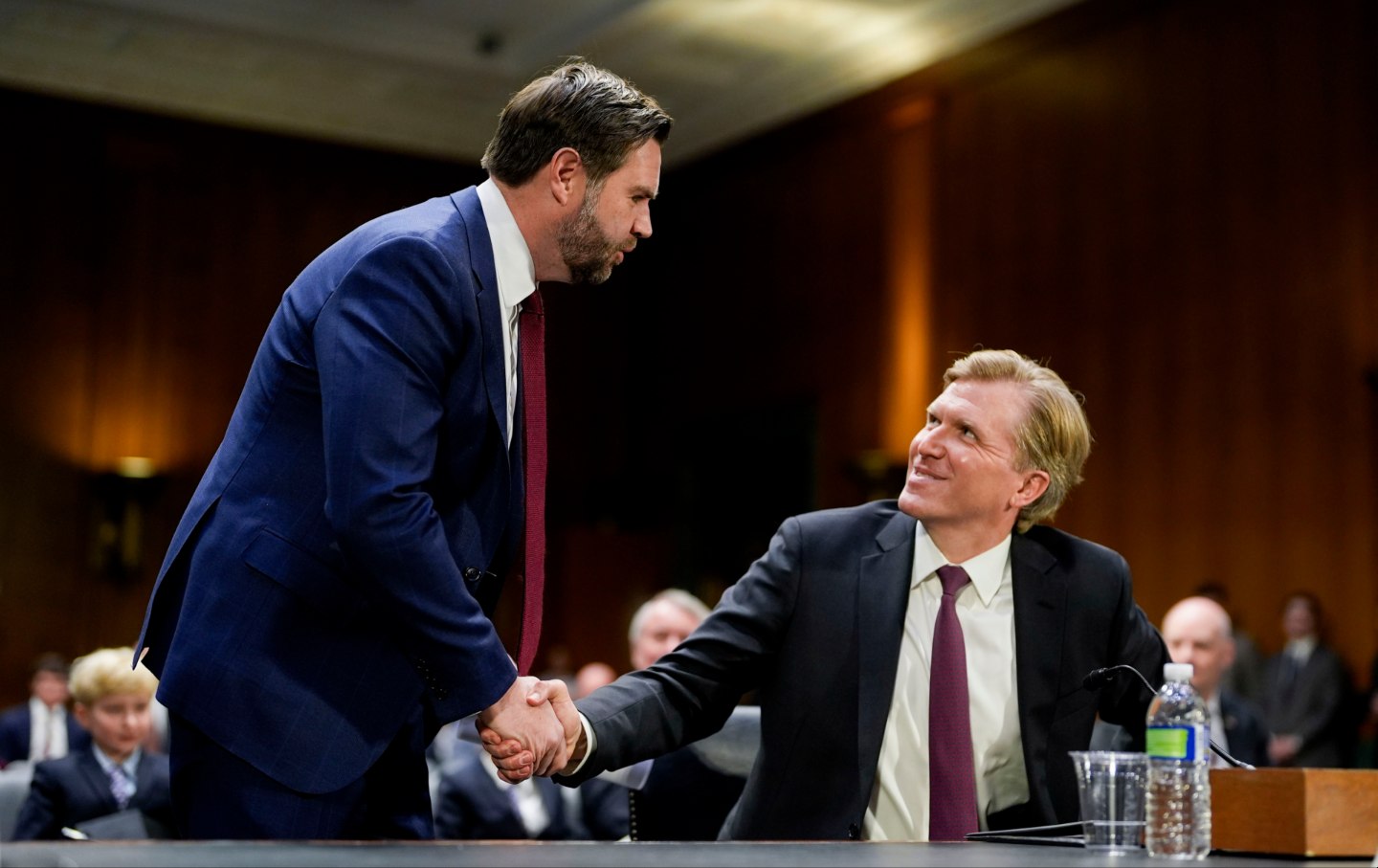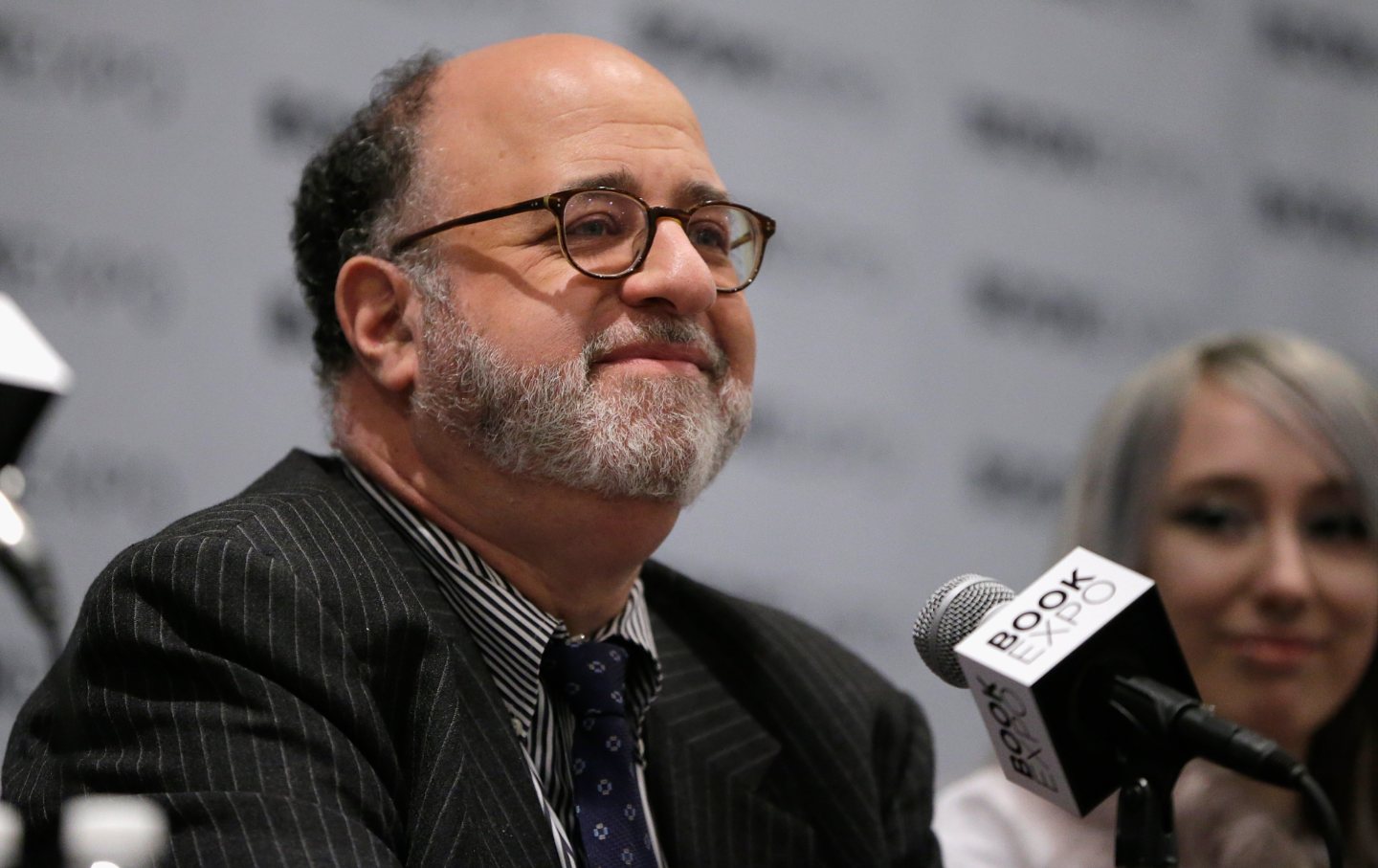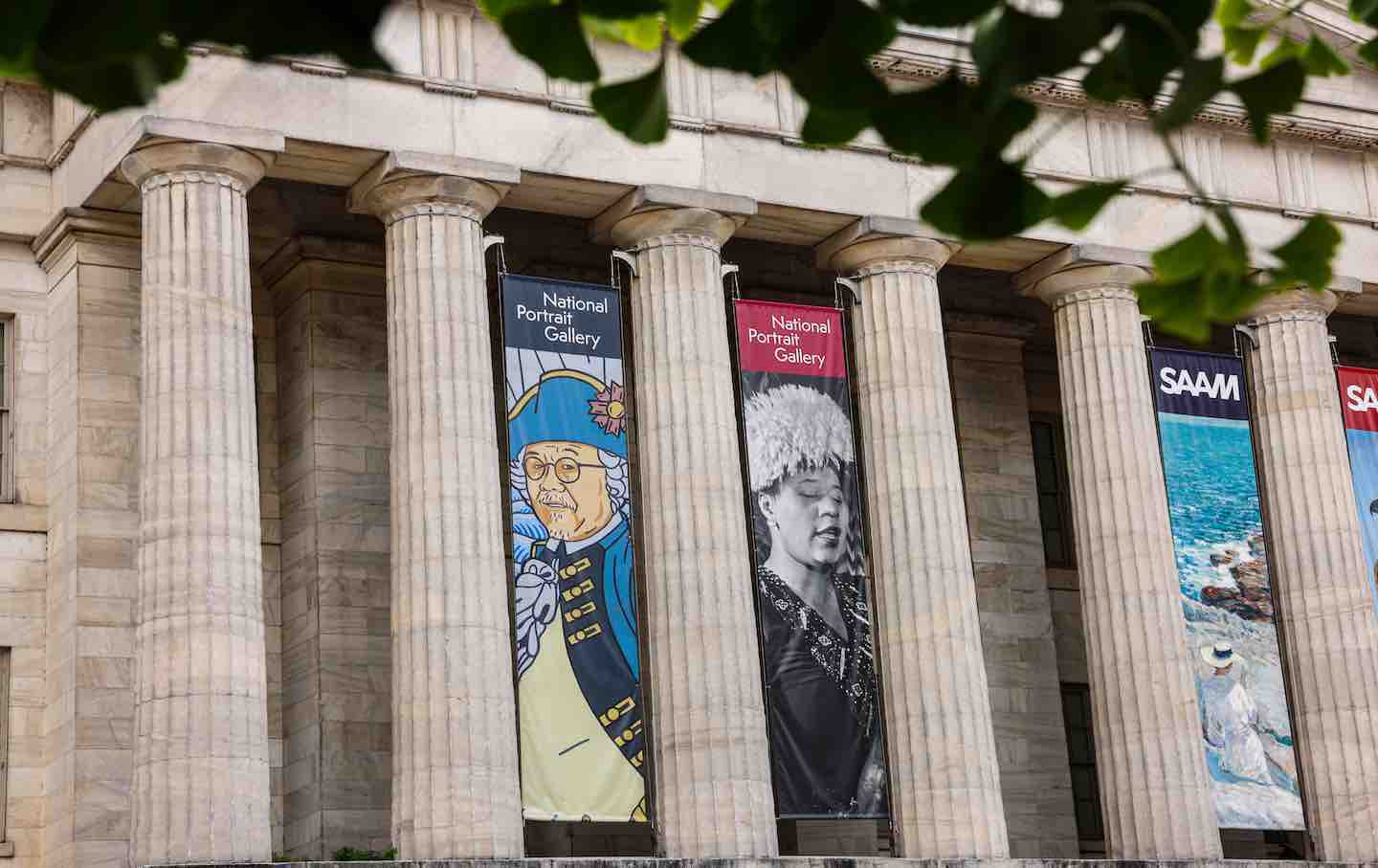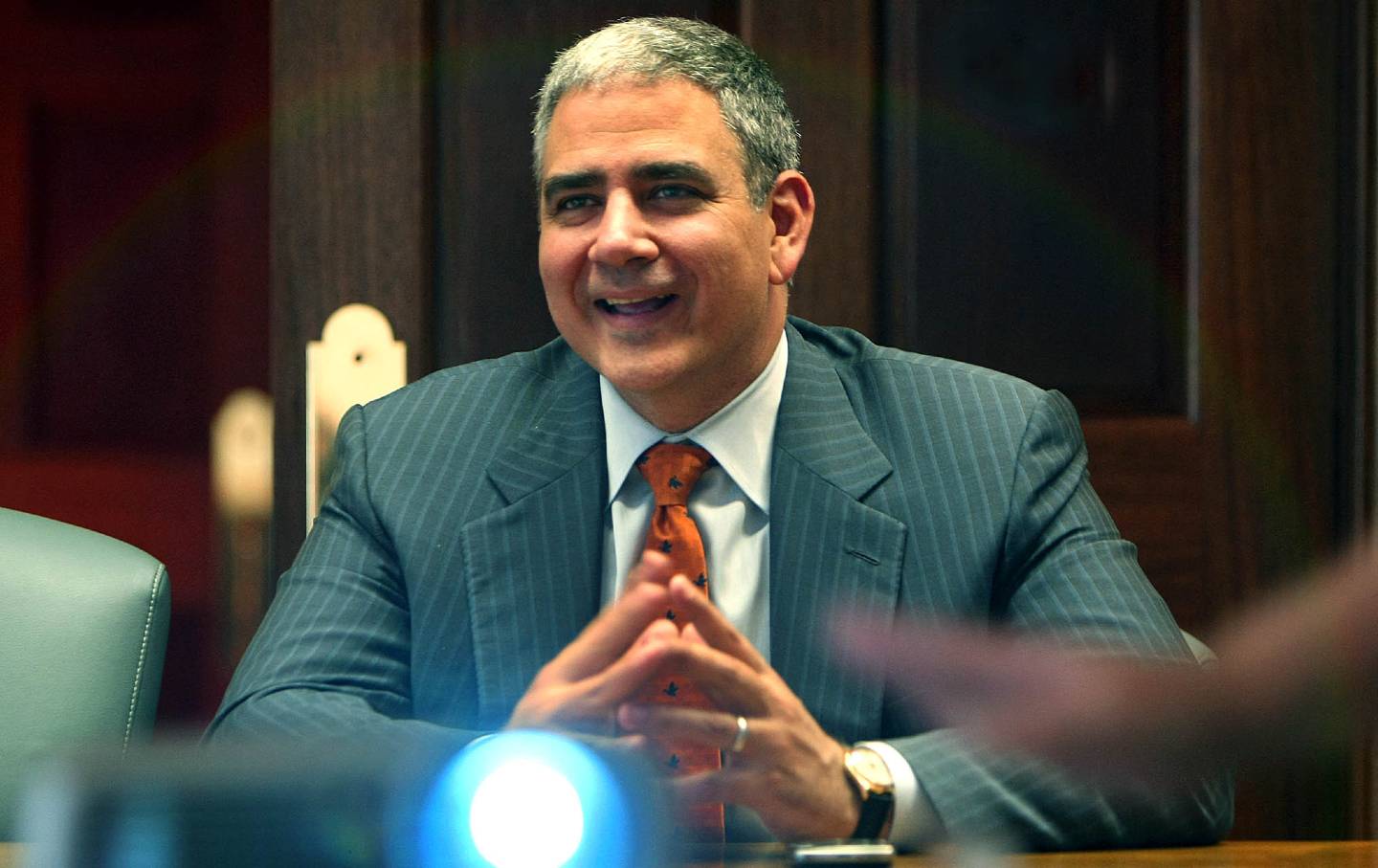The Roots of Trump’s Foreign Policy Instability

US Vice President JD Vance, left, and Elbridge Colby, under secretary of defense for policy nominee for US President Donald Trump, shake hands during a Senate Armed Services Committee confirmation hearing in Washington, DC, US, on Tuesday, March 4, 2025.
(Kent Nishimura / Bloomberg via Getty Images)
Donald Trump’s foreign policy has been as unstable as the man himself, shifting quickly from pushes for restraint to escalating wars in the Middle East. This volatility is a function not just of Trump’s personality but of the contradictions and competing factions that are gathered under the term America First, as well as the continued power of the foreign policy establishment that Trump has claimed he defeated, but which maintains a strong capacity to shape policy. To talk about Trump’s foreign policy and the factional battles that have bedevilled his administration, I spoke to Justin Logan, director of defense and foreign policy studies at the Cato Institute.
In particular, we take up the attacks on Elbridge Colby, the undersecretary of defense for policy. Colby was the subject of a Politico hatchet job that claimed he was running a rogue foreign policy. Justin critiqued this analysis here.
Subscribe to The Nation to support all of our podcasts: thenation.com/podcastsubscribe.














Post Comment